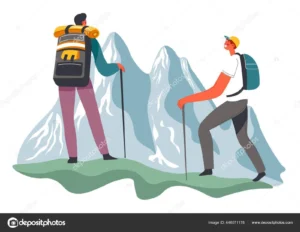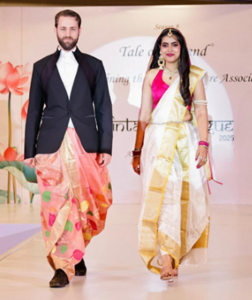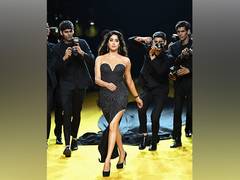From Page to Screen: Best Literary Adaptations for College Learners

Movies may brilliantly, unforgettably bring those stories to life; literature stimulates the imagination. Literary adaptations give college students a unique opportunity to explore topics, go deeper into both ancient and contemporary works, and appreciate narrative in several media. If you are a college student looking for some must-watch films based on great books, you are going to have fun. Combining intellectual depth with cinematic brilliance, let’s look at the best literary adaptations appealing to college students.
Why Are Literary Adaptations Perfect for College Students?
Literary adaptations serve to narrow the barrier separating traditional and modern story. They explain the heart of the original text by helping to visually ground challenging ideas and characters. Seeing a movie adaptation of a book you have read (or intend to read can also help you to understand it and motivate passionate classroom discussions.
Using these adaptations is one creative way to interact with books. For students with demanding schedules, watching a two-hour movie can provide a faster—but less powerful—introduction to great works of fiction. Now let us go over several great adaptations perfect for your next study break.
1. The Crucible
Students who want to be motivated by a narrative of moral struggle, determination, and honesty would most definitely find the 1996 film adaptation of Arthur Miller’s well-known drama interesting. Under Nicholas Hytner’s direction, the film beautifully conveys the tension, anxiety, and sad results of false claims, so vividly bringing to life the terrible Salem witch trials. Daniel Day-Lewis offers a superb performance as John Proctor, a man trying to save his name and follow his ideals; Winona Ryder plays Abigail Williams with terrible emotion, thereby portraying the pitfalls of dishonesty and unfettered power.
Since the film is more than just a compelling historical drama—it’s a great meditation on the human potential for terror and its consequences—it provides an amazing forum for critical thinking and classroom debates. For students interested in exploring the deeper meanings of the play, must-read The Crucible essays provide valuable insights into its themes of justice, reputation, and the abuse of authority. Watching the film alongside reading these essays allows learners to better understand how Miller’s work resonates with contemporary issues, inspiring viewers to think about the importance of standing up for truth. Those who are eager to learn more about the possibility of literature to reflect society’s achievements and problems will find perfect fit in this adaptation.
2. To Kill a Mockingbird
The prescribed novel for high school and college literature classes is Harper Lee’s To Kill a Mockingbird. Under direction Robert Mulligan, the 1962 film adaptation pays tribute to the book’s sensitive, moral, and racial themes.
Gregory Peck presents Atticus Finch in nothing less than mythical form. His deliberate acting catches the integrity and fortitude of one of the most cherished characters in literature. The film’s black-and- white imagery captures the societal dynamics of the day and lends still another degree of weight.
Why do college students appreciate it? Since morality and justice still apply, the film is a great beginning point for ethical, privilege, and humanity discussions.
3. The Great Gatsby
There is no way college students could possible miss Baz Luhrmann’s outstanding rendition of The Great Gatsby. While some would contend that the 1974 adaptation more faithfully reflects the book, the 2013 remake starring Leonardo DiCaprio uses contemporary music and striking images to depict the richness, drama, and tragedy of the Roaring Twenties.
Particularly relevant in the consumer-driven, fast-paced environment of today, the film masterfully depicts the search of the American Dream and the emptiness of materialism.
Why do college students find it interesting? Like Jay-Z’s tunes, Luhrmann’s masterful imagery and anachronistic music give this classic feel contemporary and approachable.
4. Pride and Prejudice
Though Pride and Prejudice by Jane Austen has been viewed many times, Joe Wright’s 2005 portrayal distinguishes out for its innovative approach of this timeless romance. Keira Knightley masterfully captures Elizabeth Bennet; Matthew Macfadyen’s Mr. Darcy is moody, unforgettable.
The film gets the social constraints and deft discussion of Austen’s novels while juggling romantic tension with stunning landscape and powerful music.
Why might college students value it? With sharp criticism on gender roles, love, and society expectations—all issues pertinent to young people—this easily available introduction to Austen’s universe is highly relevant.
5. The Perks of Being a Wallflower
For young readers seeking something greater than their own experiences, Stephen Chbosky’s book The Perks of Being a Wallflower is a moving coming-of-age narrative. Chbosky personally saw the film to ensure the adaptation stayed true to the tone of the book.
The story revolves on social awkward teen Charlie negotiating friendship, first love, and mental health concerns. The film’s poignant study of identity, trauma, and belonging will appeal especially to viewers—especially those in college who might be thinking about similar concerns.
College students find it immensely relevant and expressive as it offers a raw yet hopeful view of growing up.
6. 1984
As relevant today as it was first published, George Orwell’s dystopian masterpiece 1984 is Under Michael Radford, the 1984 adaption catches the depressing, restrictive atmosphere of an authoritarian country where human freedom is eliminated.
John Hurt’s performance of Winston Smith is hauntingly strong, while Richard Burton in his penultimate section offers a terrifying one as O’Brien. Since the movie faithfully captures the tone of the book, everyone interested in politics, surveillance, or human rights should absolutely check out the film.
Why do college students love it? The film is an interesting digital era watching since Orwell’s warnings on dictatorship and extensive spying appear shockingly accurate.
Bonus Choices: Additional Must-See Adaptations
- Little Women
Its complex narrative and great performances by Saoirse Ronan, Florence Pugh, and Timothée Chalamet resurrect this story of sisters, ambition, and independence in the modern masterwork Greta Gerwig created from Louisa May Alcott.
- The Trilogy Lord of the Rings
Though nominally a series, Peter Jackson’s interpretation of J.R.R. Tolkien’s epic fantasy is nonetheless a cultural phenomenon. The bravery, friendship, and sacrifice found in the movies will especially inspire young individuals beginning their own road.
How to Get the Most Out of Literary Adaptations
Though it can enhance rather than replace reading the original material, seeing an adaptation can help. To see how themes, characters, and settings are handled, try seeing the movie following book reading. Directors may have creative license, which would encourage critical thinking and conversation in class or among friends.
Studying behind-the-scenes movies or interviews will also allow you to understand the directors’ point of view on revising the source material. This could offer perceptive study of the challenges translating words into pictures.
Finally
From daring dystopias to eternal love and justice themes, literary adaptations provide a window into stories that have shaped our viewpoint of the world. For college students, these movies provide tools for development, contemplation, and study as much as entertainment value. So grab some popcorn, select a comfortable seat, and let these adaptations inspire you to see your favorite books in a whole fresh way.






